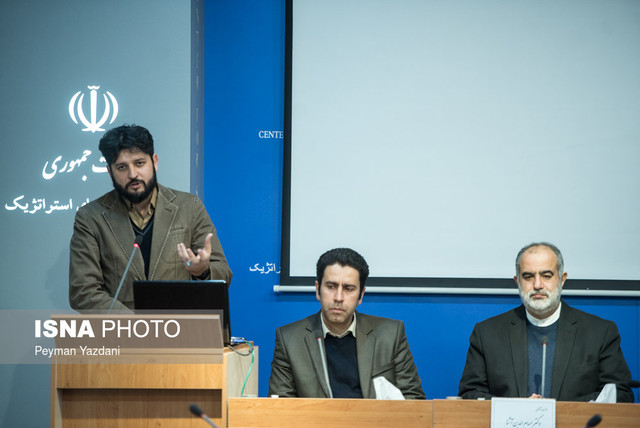Pollsters Arrested While Conducting Survey Showing Majority of Iranians Dissatisfied With Domestic Affairs

Some pollsters who were gauging views about Iran’s December 2017 protests have been arrested, according to Mohammad Aghasi, the head of the Iranian Students Polling Agency (ISPA).
“It was difficult to conduct polls about the recent protests due to the arrests of some of the researchers in a number of cities,” said Aghasi at a conference in Tehran on February 7, 2018. “Usually, we do the polls in two days but this time it took longer because of some of these difficulties.”
ISPA surveyed 4,500 people nationwide between January 5-15, 2018, soon after the protests that erupted across dozens of Iranian cities between December 28, 2017, and January 4, 2018. Nearly 75 percent of those questioned expressed dissatisfaction with domestic affairs in the country.
Aghasi did not provide any further details about the arrests.
At the conference, he discussed the results of three recent polls conducted by ISPA, the Center for International and Security Studies at the University of Maryland, and the Iranian Institute of Logic and Society.
ISPA operates under an official license by the University Jihad Organization, a branch of the Supreme Cultural Revolution Council, which is under the control of Iranian Supreme Leader Ali Khamenei.
According to Aghasi, 69 percent of the people surveyed believed that the main demand of the protesters was a better economy and more jobs, followed by an end to financial corruption, injustice and ending support for “some countries such as Syria and Palestine,” freedom of expression and the release of opposition leaders under house arrest.
Only 25 percent were satisfied with the general state of affairs in the country and 40 percent said they had no hope “in reform.”
ISPA’s poll also found that the most popular social media network used by Iranians is Telegram, at 58.3 percent saying they use it. Only 17.2 percent of those surveyed supported the state’s blocking of the private message network during the protests and 11.7 percent said they believe it should be permanently blocked.
In 2002, the private Ayandeh Institute was shut down after publishing a poll showing that 75 percent of Iranians were in favor of negotiations with the US.
